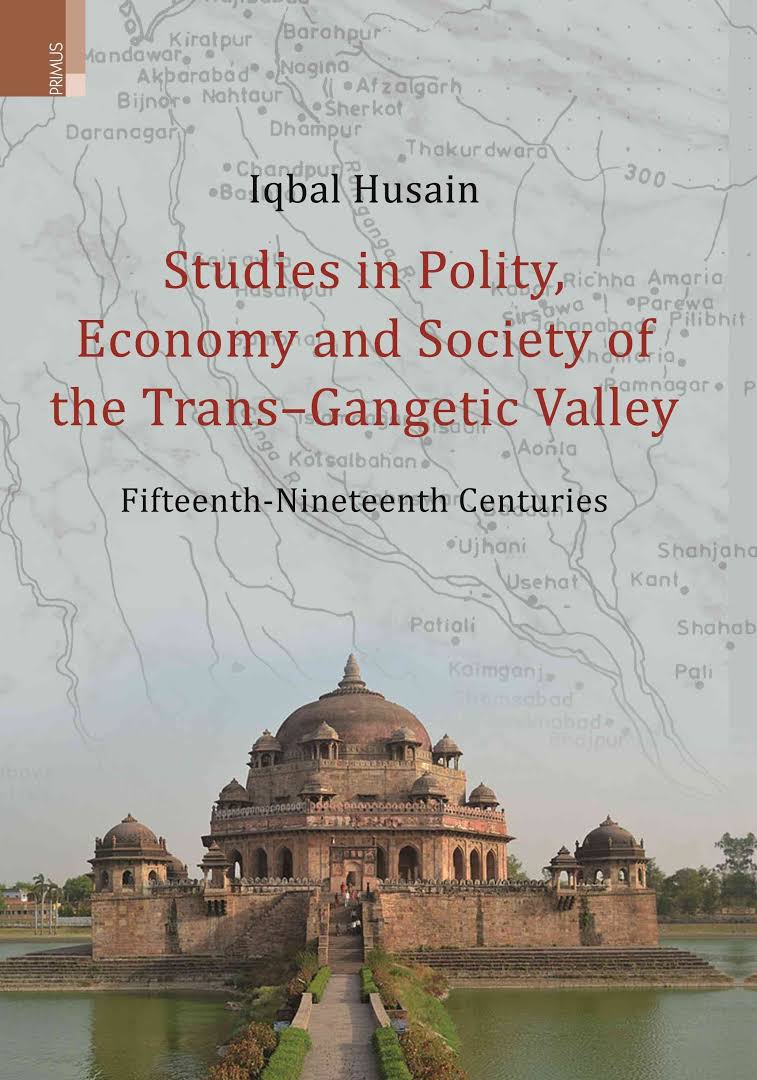
Studies in Polity, Economy and Society of the Trans-Gangetic Valley: Fifteenth-Nineteenth Centuries
EDITOR : Iqbal Husain
| HB ₹1295 . $99.95 . £65.95 |
||
INFORMATION
- EDITOR : Iqbal Husain
- HB ISBN : 978-93-80607-51-1
- Year : 2013
- Extent : 456 pp.
- Discount available on checkout
- Usually dispatched within 3 to 5 working days.
Tagore
| HB ₹ 995 . $ . ₤ |
PB ₹ . $ . ₤ |
|
| POD ₹ . $ . ₤ |
e-Book ₹ . $ . ₤ |
INFORMATION
- AUTHOR –
- ISBN – 978-93-84082-78-9
- Year – 2016
- Extent: 400 + 40 coloured illustrations
- 10% discount + free shipping
- Usually dispatched within 3 to 5 working days.
This book explores the varied political structures and socio-cultural formations in the Trans-Gangetic Valley from the fifteenth to the nineteenth centuries. Empirically rich and extensively documented, the essays in this book delve into rare sources and documents, and provide fresh insights into our understanding of the period. They deal with the diffusion of Islam in India, and highlight its varied, indigenous character, focusing on both revivalist as well as reformist trends within South Asian Islam. They also extensively analyse the thoughts and ideas of Indo-Muslim reformist thinkers like Syed Ahmed Khan and Akbar Allahabadi, and focus on Dara Shikoh and Shahabuddin Suhrawardi to comment on the philosophy and metaphysics of medieval thinkers. These essays are based on a wide variety of extant archival records: family papers of the revenuegrantees in Lucknow, Firangi Mahal papers, and Urdu and Persian manuscripts.
The Editor
Iqbal Husain was Professor at the Centre of Advanced Study in History, Aligarh Muslim University. He is the author of The Rise and Decline of the Ruhela Chieftaincies in 18th Century India (1995) and has edited Karl Marx on India: From the New York Daily Tribune & Extracts from Marx-Engels Correspondence, 1853-62 (2006).
As a global figure, Tagore transcends the boundaries of language and reaches out to people distant both in time and space. His art took inspiration from contemporary Western trends and became a powerful means to connect with people beyond Bengal. Word, image, song, and text were his tools of communication, as also his extraordinary presence in a sartorial garb of his own design. A littérateur in many genres, the impact of his work was determined both by the material he presented, and by its simultaneously local and global contexts. Now, when his international reputation has spanned over more than a hundred years, it is important to revisit the sites of Tagore’s eminence, and ask to what extent he was a ‘living text’ in the century that witnessed him as a global intellectual.
Accordingly, this volume investigates how Tagore’s writings and art are linked to the metalinguistic domains of the psychological, medical and mythical; how he was received in various cultures outside India; how his art was determined by individual circumstances and global aspirations; and how he acted as an inspiration to his contemporaries and subsequent generations including modern Indian writers and artists.
The Editor
Imre Bangha studied in Budapest and Santiniketan and at present is Associate Professor of Hindi at the University of Oxford. He has published books and essays in English, Hindi, and Hungarian on literature in Brajbhasha and other forms of old Hindi and has also prepared Hungarian translations from various South Asian languages. His work on the international reception of Bengali culture includes Rabindranath Tagore: Hundred Years of Global Reception (2014, co-edited with M. Kämpchen) and Hungry Tiger: Encounter between India and Central Europe (2007).




